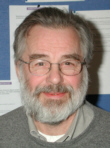In a recent series of posts, April DeConick has been talking about social memory, again. In particular, she’s airing some of the issues raised in the Memory and Textuality session, at which she was the respondent. April has an excitement about the area of memory which is contagious:
“I think that the study of human memory is the future of biblical studies. The people that are giving papers in the memory sessions are really on the cutting edge of future methodology. They are setting us on a new course.”
– April DeConick, SBL sessions: Memory and Textuality
In her latest post, she proclaims that biblical studies should become more scientific in its study of the processes behind the writing of biblical texts:
“In order to know how this process [of memorizing] worked [in the ancient world] and how it might have affected the composition of our texts, it is essential in my experience to experiment and to read in cognitive psychology which tells us how human memory operates and affects the transmission process. When we compare the results of this knowledge with what we see in our texts, it is really quite amazing what we can learn about the ancient people processes.”
– April DeConick, ‘Become more scientific’
I am in fundamental agreement with her on this point. Although it pushes us outside our comfort zones, and if done badly can result in worse results than not being done at all, the potential for new and better ways of understanding the texts is huge.
I’ll suggest a way to do it, too. I think we could apply the basic archaeological theory called “middle range theory” as a model, an approach originally put forward by Lewis Binford and the ‘New Archaeology’ of the 1960s — although adapted for the subject-matter of biblical studies. At its simplest, “middle range theory” involves the systematic study of the complex interrelationships between modern material artifacts and their related modern human cultures, for the purpose of applying this interrelationship to the ancient material artifacts that archaeologists dig up. Although we can study how material artifacts are used by living peoples today, we can only study the material artifacts of ancient peoples. We have no direct access to their minds, to their cultures. So middle range theory serves to fill this gap, a bit like this:

The basis for Binford’s method is simple yet compelling:
“if a distinctive combination of material traits could be demonstrated to correlate with a specific pattern of behavior in living societies, the discovery of the same combination of material traits in the archaeological record would permit similar behavior to be associated with a [material] archaeological culture.”
– Bruce Trigger, A History of Archaeological Thought (2006): 508.
Some might object that people aren’t as predictable as pottery, so any scientific study is doomed to be uncertain. This is undoubtedly true. But I have a couple of rejoinders. First, in the humanities nobody is aiming for certainty. Lack of certainty is a given, whether our methods are more or less robust. So, why not aim for more robust methods? Second, what is the alternative? In the absence of tested assumptions, people tend to fall back on a version of Rudyard Kipling’s ‘Just-So Stories’. That is, they tend to ask, ‘what would I do in their situation if I were a first-century illiterate peasant?’ And although this is something of a caricature of the alternative, under the “Just-So Story” approach there is a much higher risk of our interpretation of ancient cultures being determined by our untested current prejudices. At the very least it opens up new possibilities for interpretation. There are many aspects of biblical studies which a more scientific approach would benefit from — not every aspect, but certainly a great number.
So, I agree with Dr DeConick — biblical studies should become more scientific. Whether this should be carried out by specialist biblical scholars (knowledgeable of both biblical studies and, say, cognitive psychology) or ‘outsourced’ to other disciplines is an interesting question. But, either way, in order to be successful, a “middle range theory” for biblical studies should certainly be carried out by trained experts. That’s my one proviso. Otherwise – bring it on!
 Congratulations to Thomas L. Thompson, who turns 70 today (Jan 7, 2009). Since his landmark work on the non-historicity of the patriarchal narratives in Genesis — except for a short stint as a house-painter — Professor Thompson has been at the forefront of work on myth and (lack of) history in biblical narratives. His major works include The Historicity of the Patriarchal Narratives (1974), The Origin Tradition of Ancient Israel (1987), The Early History of the Israelite People (1992), The Bible in History: How Writers Create a Past (London, 1999) = The Myth of Ancient Israel (New York, 1999), and The Messiah Myth: The Near Eastern Roots of Jesus and David (2005).
Congratulations to Thomas L. Thompson, who turns 70 today (Jan 7, 2009). Since his landmark work on the non-historicity of the patriarchal narratives in Genesis — except for a short stint as a house-painter — Professor Thompson has been at the forefront of work on myth and (lack of) history in biblical narratives. His major works include The Historicity of the Patriarchal Narratives (1974), The Origin Tradition of Ancient Israel (1987), The Early History of the Israelite People (1992), The Bible in History: How Writers Create a Past (London, 1999) = The Myth of Ancient Israel (New York, 1999), and The Messiah Myth: The Near Eastern Roots of Jesus and David (2005).





 Wazana, Nili,
Wazana, Nili,  Fishbane, Simcha,
Fishbane, Simcha,  Crook, Zeba A. and Philip A. Harland, editors,
Crook, Zeba A. and Philip A. Harland, editors, 
 The faculty of the Westminster Theological Seminary voted in favour of Enns’ orthodoxy in terms of the Westminster Confession. According to the faculty, Enns was always operating within the confessional boundaries of the Westminster Theological Seminary. But the academically ignorant board of the Westminster Theological Seminary tried to second-guess the academic staff on an academic matter. This is where academic integrity came to an end at WTS.
The faculty of the Westminster Theological Seminary voted in favour of Enns’ orthodoxy in terms of the Westminster Confession. According to the faculty, Enns was always operating within the confessional boundaries of the Westminster Theological Seminary. But the academically ignorant board of the Westminster Theological Seminary tried to second-guess the academic staff on an academic matter. This is where academic integrity came to an end at WTS.